While we’ve always advised you to take Google Ads’ recommendations with a grain of salt, we reinforced this with a little more caution after auto-apply recommendations amped up in 2021, and we’re amping up the caution just a liiiiitle more now, after a new update that Google announced last week:
As of January 19, the way the “remove redundant keywords” recommendation works is changing to work across match types. This update has caused confusion and understandable frustration among advertisers, and has implications. So read on to learn:
- What is changing about this recommendation
- Whether it impacts your account
- Why it has upset the PPC community
- What you need to do
The context, clarification, and course of action you need to stay in control of your campaigns!
The TL;DR
This announcement can basically be distilled down into three key points:
- As of January 19, the “remove redundant keywords” recommendation will change such that “redundant keywords” will not just be keywords with higher-performing keywords of the same match type, but also keywords with broader match types, in the same ad group.
- If you are currently enrolled in auto-apply for this specific recommendation and don’t want Google to automatically remove redundant keywords according to this new definition on January 19 (or are unsure), then you should opt out of auto-apply for this recommendation now.

- The change lends itself to many advertisers’ predictions of match-type-less future, and the way Google went about it has caused further unease in the reliability of its recommendations.
Confused? Read on to get the deets! Satisfied? Read on anyway so you can make sure you’re fully informed!
The context: How do recommendations work in Google Ads?
Google Ads recommendations is a feature that uses your performance data, campaign settings, and trends across Google to make (wait for it…) recommendations to improve your campaigns. You can access them by clicking “Recommendations” at the top left of your dashboard.
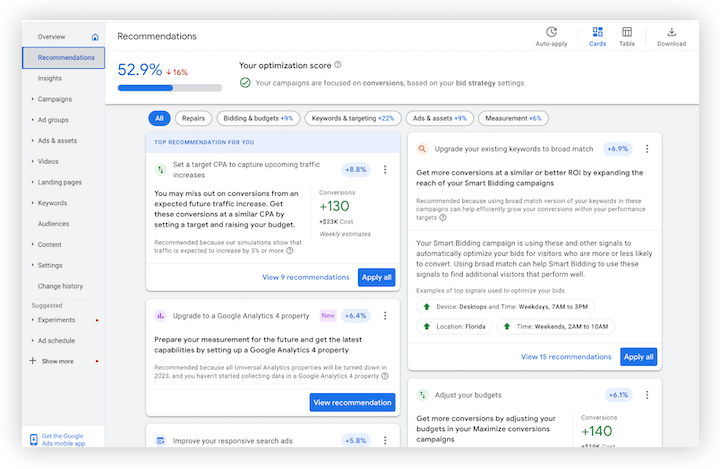
There are dozens of recommendations, the list always growing, and they fall into several different types:
- Ads and assets
- Automated campaigns
- Bidding and budgets
- Keywords and targeting
- Repairs
- Measurement
- Other
Google describes each one in its recommendations help page. As you can imagine, the reliability of these recommendations varies by account and recommendation—while Google’s data and machine learning can be effective, at the end of the day, a human will know the ins and outs of any given account and ultimately what’s best for it—which is why the best practice is to take them with a grain of salt.
What are auto-apply recommendations?
There are basically three ways to manage Google’s recommendations:
Manually, in bulk: You can click “Apply all” to apply all recommendations for a particular category.
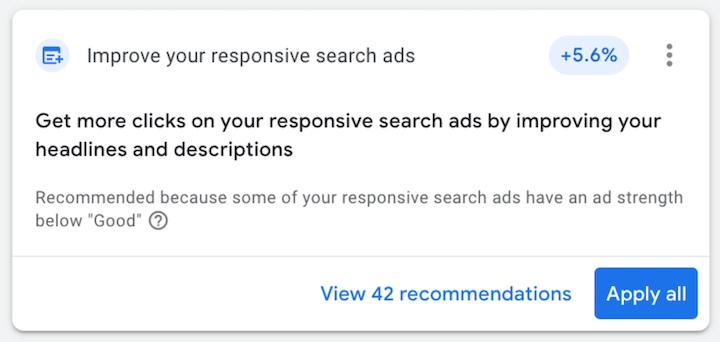
Manually, individually: If you click “View all recommendations” for a particular category, you can view each individual recommendation and choose whether to apply it.
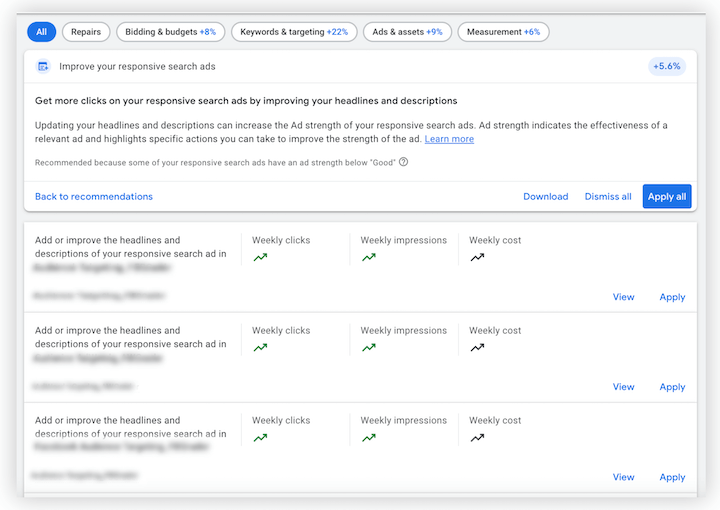
Automatically: This means that Google will automatically implement the suggestion. Of course, this only applies to recommendations that can be executed automatically. You can customize which recommendations you want to opt into auto-apply. Depending on the size and complexity of the account, this may make sense for some advertisers.
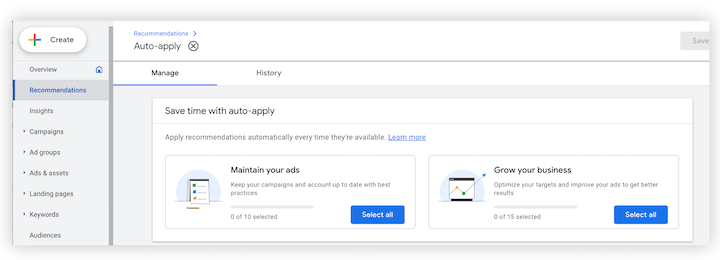
Which recommendation is changing?
This article and update is referring to advertisers who are enrolled in auto-apply for the “Remove redundant keywords” (RRK) recommendation. It looks like this in the Recommendations page:
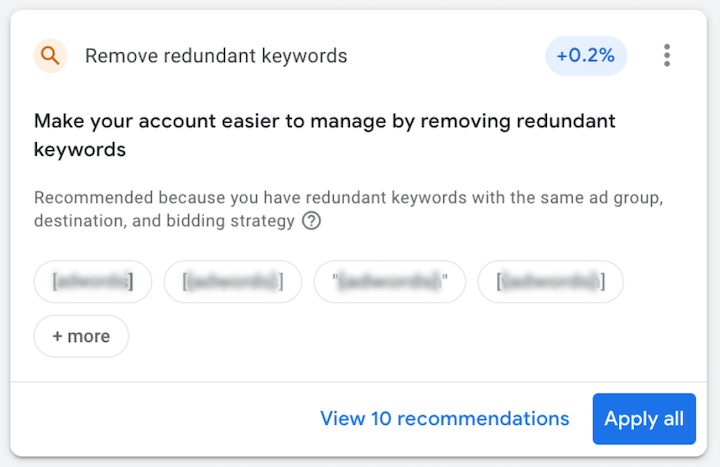
The clarification: What is changing with the remove redundant keywords recommendation?
On January 4, Google emailed advertisers enrolled in auto-apply for RRK, saying that the behavior of this recommendation will change on January 19.
The email says:
Currently, the ‘Remove redundant keywords’ recommendation suggests redundant keywords within the same ad groups, destination, bidding strategy, and match type. Starting January 19, the recommendation can include keywords across different match types
What this means is, “redundant keywords” used to just refer to keywords that are equivalent to higher-performing keywords with the same match type, but now it also refers to keywords that have broader match types. In other words, Google will remove a “redundant” phrase or exact match keyword if it has a broad match version in the same ad group.
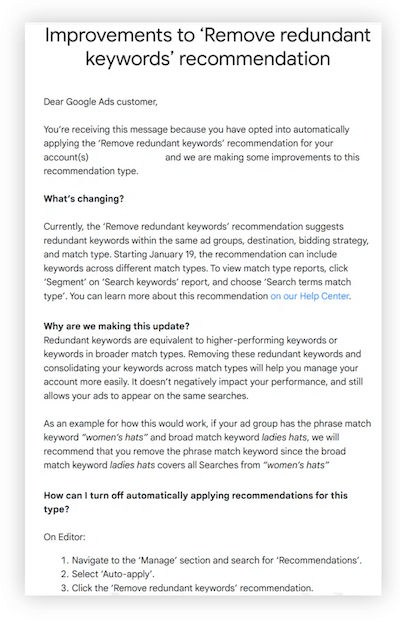
The example Google gives is this:
If your ad group has the phrase match keyword “women’s hats” and broad match keyword ladies hats, we will recommend that you remove the phrase match keyword since the broad match keyword ladies hats covers all searches from “women’s hats.
And the reason Google gives is this:
Removing these redundant keywords and consolidating your keywords across match types will help you manage your account more easily, doesn’t negatively impact your performance, and still allows your ads to appear on the same searches.
How does this impact your account?
For those of you enrolled or previously enrolled in auto-apply for the RRK recommendation (and even for those of you who aren’t), you probably have more questions about this. Here are some more clarifications based on Google Ads Liaison Ginny Marvin’s FAQ Twitter thread, which you can view here.
- Any ad groups with ads that use keyword insertion have been excluded from the suggestions.
- This does not make you eligible to appear for more searches, since you already have the broad match keywords in your account.
- If you opt out before January 19, it will not change ad groups where you previously applied this recommendation.
Q. If you applied a “remove redundant keywords” rec manually, will this update impact you?
A. This doesn’t affect past recommendations, whether applied automatically or manually. Starting Jan 19, you may see recs to remove redundant keywords covered by your broad match keywords— AdsLiaison (@adsliaison) January 5, 2023
Click on the Tweet above to view all six FAQs.
That last bullet is key. What it means is, if you removed redundant keywords from ad groups in the past (according to the old definition, whether automatically or manually) and Google finds additional redundant keywords after January 19 according to the new definition, Google will not automatically remove those keywords from those ad groups—unless you are opted into auto-apply. You will get a fresh recommendation with the option to apply or ignore.
The consensus: Why are advertisers upset?
While this update technically only impacts advertisers enrolled in auto-apply for RRK, there are broader implications here that you should be aware of. In his Search Engine Land article, Cypress North Director of Marketing Greg Finn speaks on behalf of many advertisers in the PPC community who are frustrated by this move, for three main reasons:
- First, because instead of adding it as a new recommendation, Google is changing an existing recommendation and essentially defaulting users to be opted into it unless they opt out. As Greg puts it, “How can advertisers trust a single recommendation from Google if what you agree to today can be something completely different tomorrow?”
- Second, because Google says this change “doesn’t negatively impact your performance,” but advertisers still very much rely on phrase and exact match to keep their ads relevant and our costs low. So this continued push for broad match and trend toward a potentially match type-less future is increasingly seen as a money grab on Google’s part.
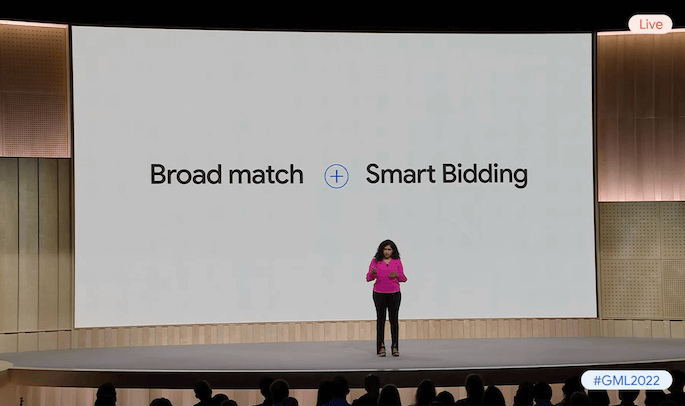
- Third, because there are many small businesses and beginner advertisers out there who can be taken advantage of by these recommendations. Without the contextual knowledge—namely, how to handle recommendations, how match types have been evolving, Google’s whole shift toward automation, and the fact that Optimization Score isn’t everything—one can easily opt into something that will actually cause them to lose money (to Google’s benefit).
The course of action: What should you do?
As I mentioned in the intro, the key takeaway is the same: be careful with Google’s recommendations and even more careful with auto-applying them. What does that look like?
Opt out of auto-apply for this recommendation. Circling back to our TLDR section, if you are currently enrolled in auto-apply for this specific recommendation and don’t want Google to automatically remove redundant keywords according to this new definition on January 19 (or are unsure), then you should opt out of auto-apply for this recommendation now.
Take recommendations with a grain of salt. Not all recommendations are bad, and some of them can help you learn about new features. It’s just that not all of them take into account the specifics of your account, and some of them do appear to be more in Google’s favor rather than the advertiser’s best interest. So avoid any extreme measures here—ignoring them all or applying them all—and take the time to manually review them and apply them as you see fit.
Continue to be careful with auto-apply recommendations. While recommendations may appear to be a beginner-friendly feature, auto-apply is better for more experienced advertisers who have an understanding of the inner workings of their account and know what they can automate. And even still, most experts, while they may be receptive to some recommendations, aren’t too keen on auto-applying them. Beginners are better off sticking with manual work as this will ultimately save you time and money in the long run. If you can’t do the manual work, there are plenty of agencies that can help you out! Helpful resources here:
- Should You Let Google Auto-Apply Recommendations? Pros & Cons
- Google Ads Automation: When (and When Not) to Use It
Review your current auto-applies
That being said, this is a good time to check in on any auto-apply recommendations you are subscribed to. Make sure you fully understand what they mean, and if you opt out of any of them, check your change history to make sure no changes were applied that you don’t want.
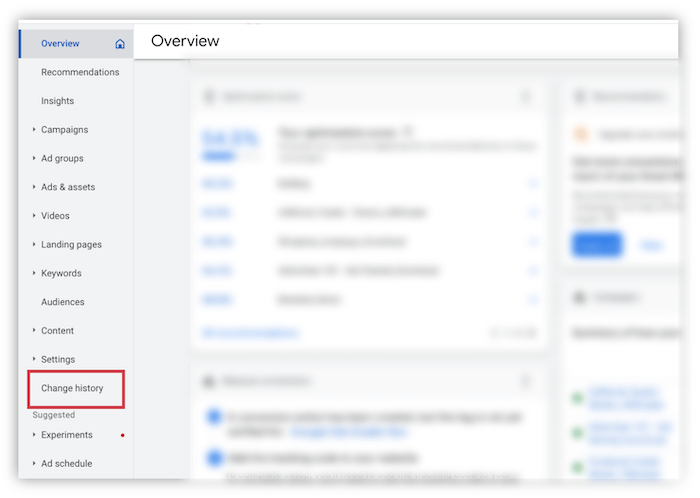
Clean up your keywords. Regardless of how applicable this specific recommendation is to your account, cleaning up your keywords in general is a best practice for maximizing your performance. Review your ad groups and make sure they are following account structure best practices. That is, sticking to one core theme and no more than 20 keywords per ad group. For more help with keywords:
- I cover the last major match type update here.
- Michelle Morgan provides solid advice on whether you should use broad match with Smart Bidding here.
- Greg also has a great article on use cases for using multiple match types for the same keyword, even when using broad match and Smart Bidding.
At the end of the day, you and not a machine will know what’s best for your account. So be receptive, but not reliant on recommendations—especially when it comes to removing redundant keywords!
The post Google’s Change to the Remove Redundant Keywords Recommendation: What You Need to Know appeared first on WordStream.


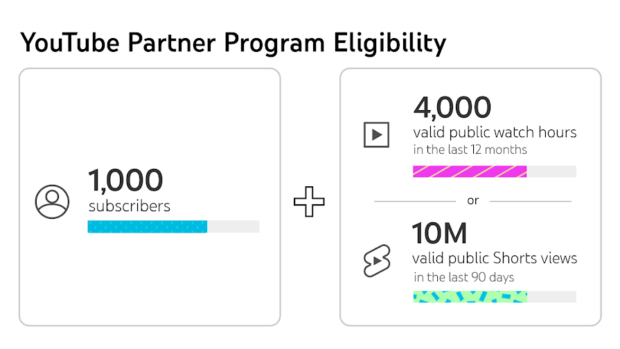

Recent Comments